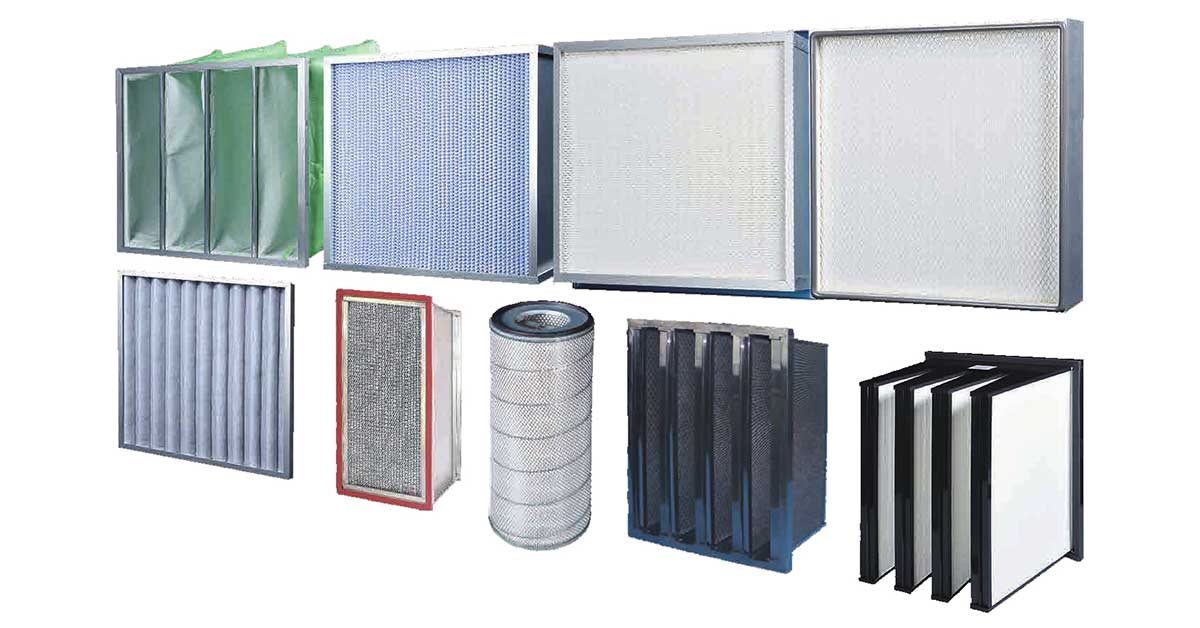 October 23, 2024
October 23, 2024
Maintaining clean, high-quality air is essential for any paint spray booth, whether you're working in the automotive industry or industrial manufacturing. Not only does air filtration ensure optimal paint quality, but it also protects workers from harmful chemicals and airborne particles. In this blog post, we’ll dive into everything you need to know about high efficiency air filters for paint spray booths—including types, performance, maintenance tips, and how to choose the best solution for your needs.

When working with spray paints, the air inside the booth becomes contaminated with overspray, dust, and volatile organic compounds (VOCs). A high efficiency air filter captures these particles, preventing them from settling on freshly painted surfaces and ensuring smooth, blemish-free finishes. Moreover, effective air filtration ensures compliance with health and safety regulations by keeping the air clean for workers.
Paint defects like uneven surfaces or bubbles.
Frequent rework, wasting paint and increasing labor.
Health hazards due to VOCs or paint dust exposure.
There are different spray booth air filters designed for specific filtration needs. Let’s take a closer look at the common types:
1. Pre-Filters
Installed at the booth’s air intake to capture larger particles like dust and debris.
Protects downstream filters by extending their lifespan.
2. Secondary Filters (Pocket Filters / Panel Filters)
These secondary filters capture finer particles, typically in the mid-filtration stage.
Available in pocket or panel filter formats.
3. HEPA Filters
High Efficiency Particulate Air (HEPA) filters can trap 99.97% of particles as small as 0.3 microns.
Ideal for environments requiring clean, particle-free air, such as automotive spray booths.
Used to reduce VOCs from paints and coatings.
Essential for facilities using solvent-based or waterborne paints.
Selecting the best spray booth air filter involves considering several factors:
1. MERV Rating
Look for filters with a high MERV (Minimum Efficiency Reporting Value) rating for better filtration. A filter with a MERV rating of 11 to 16 is suitable for paint booths.
2. Low-Pressure Drop Filters
Filters with low resistance to airflow ensure energy efficiency by reducing the workload on ventilation systems.
3. High-Capacity Dust Filters
If your spray booth generates a lot of overspray, you need a high-capacity dust filter to avoid frequent filter changes.
4. Waterborne Paint Compatibility
If you use waterborne paints, look for filters specifically designed to handle the additional moisture.
5. VOC Filtration System
For solvent-based paints, using activated carbon filters will help manage VOC emissions and comply with environmental regulations.
Regular maintenance is key to ensuring your spray booth filtration system performs efficiently over time. Here are a few tips:
Filter Replacement
Filter replacement schedules depend on the workload, but it’s recommended to change pre-filters every 3 months and secondary filters every 6-12 months.
Monitor Air Pressure
Check for pressure drop across the filters. A significant drop indicates that the filter may be clogged and needs replacement.
Clean Air Solutions for Painting
Keep the workspace clean by vacuuming around the booth regularly. This prevents dust from getting sucked into the booth.
Energy-Efficient Filtration
Use long-lasting air filters with low-pressure drop to reduce energy costs while maintaining clean air.
High efficiency air filters are used in various industries, ensuring consistent paint quality and worker safety:
Automotive Spray Booths: Achieve flawless car finishes without dust contamination.
Industrial Painting Booths: For large-scale manufacturing requiring precision painting.
Waterborne Paint Systems: Designed to manage moisture-heavy environments.
Overspray Management: Filters trap overspray particles to prevent clogging and rework.
Benefits of Using High-Efficiency Filters in Spray Booths
Improves Paint Quality: Prevents particles from contaminating freshly painted surfaces.
Ensures Worker Safety: Filters out harmful chemicals and paint dust from the air.
Reduces Energy Costs: Use energy-efficient air filtration systems to lower operational expenses.
Compliance with Regulations: Helps meet air quality standards by reducing VOC emissions.
Prolongs Equipment Life: Clean air systems extend the lifespan of your spray booth equipment by preventing dust buildup.
Investing in the right spray booth air filter can make a world of difference in the quality of your work, the safety of your employees, and the efficiency of your operations. Whether you need a HEPA filter for spray booth use, an overspray capture filter, or a VOC filtration system, choosing the appropriate filters will ensure smooth, consistent results.
Remember, proper maintenance, such as regular filter replacement and air pressure checks, will keep your system running efficiently for years to come. By selecting long-lasting air filters with a MERV rating and low-pressure drop, you can save on costs while maintaining high performance.
Looking for high-quality air filters for your paint spray booth? Ensure your filtration system is ready to handle the toughest jobs with the right filters in place. Choose wisely, maintain regularly, and enjoy flawless finishes every time!